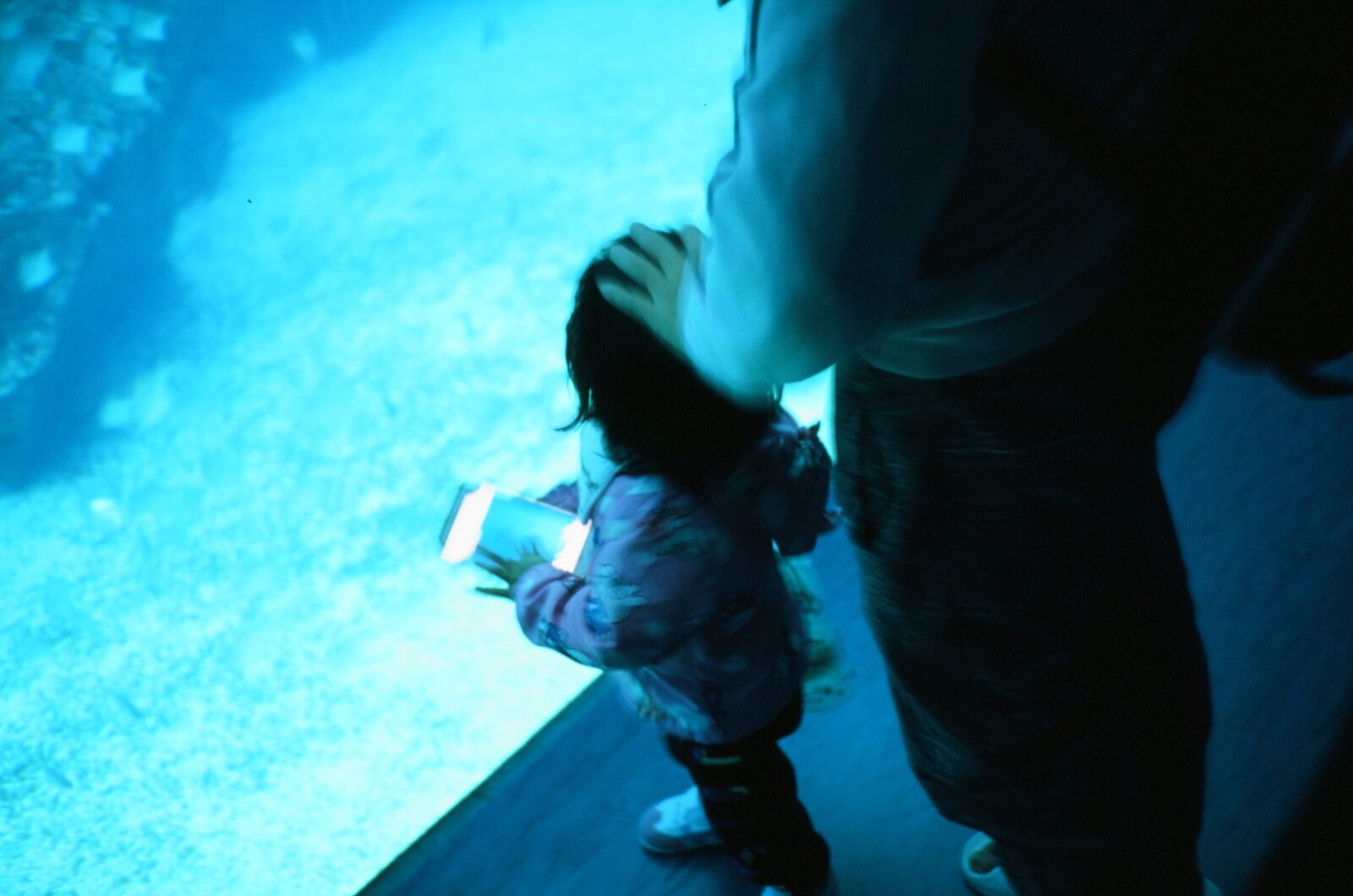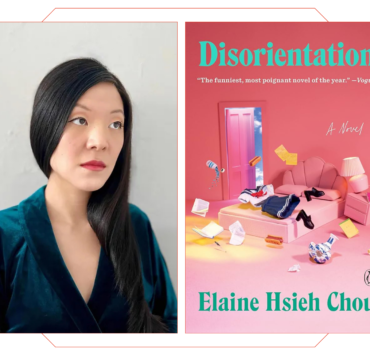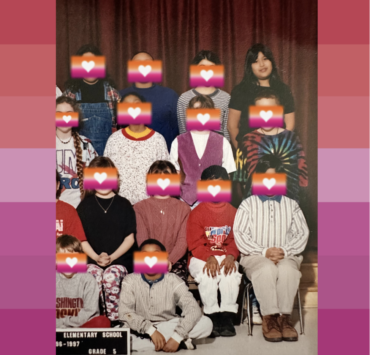
Eka felt the pressure on Tuesday morning as if she’d swallowed something large and heavy. The stomach pangs were so severe she wondered if it was appendicitis. But didn’t appendicitis begin on the right side of the body? Had she eaten too much dairy? Hadn’t she eaten enough? She tried to ignore it – sort files, mark spreadsheets – but the pain was relentless. Eka unbuttoned her wool skirt, yanked down her black tights and scarfed a dry sleeve of saltines. Nothing alleviated her suffering.
Eka counted each second ‘till six o’clock. Stared mournfully at the lithe women swanning past her desk. She was sure one of these women carried painkillers in their purse. But she couldn’t bring herself to ask. Here, her only goal was to make herself innocuous. In America the only words said were those which meant nothing at all. Her life was circumscribed by fear. She was afraid of her coworkers, especially the women—formidable, tall, leering creatures who would not hesitate to cut her from nose to navel if she simply looked at them the wrong way.
She didn’t yet know what kind of American woman she would become. She had moved to California five years ago to attend UC Irvine. Then she’d graduated and taken the first job offered to her. At first, she celebrated. She had not squandered her parents’ money, as was their expectation. She had acquired a visa, a means of financial security, and a dream. And it was always this dream, however nebulous, which she tried to articulate in her letters back to her family.
Eka wrote furiously, tearing reams of paper from the yellow legal pads she smuggled out of the firm’s supply closets. It took three stamps to send a letter to her brother in London and five to send one all the way back to Jambi. Weeks, months passed before her letters arrived. Often, her mother relayed, how they arrived with yellow stains splashed across the front as if the postman thought piss of her dreams.
Eka waited patiently her apartment’s mailroom for letters to return. When they arrived, she carried them around all day like talismans, wearing down the corners with her fingers until she felt she couldn’t take it any longer and ripped them open.
How much are you making these days? When are you coming back home? Will you get married? Do you think you’ll have a baby? Will you stay in California forever? Don’t you miss your family? Do you pray to God every night?
Endless questions, endless. All in the careful, manicured cursive Eka’s mother learned in grade school from the nuns. Her mother had only grown more obstinate in an empty home, her children distant, orbiting satellites, thousands of kilometers away. Eka wondered if her mother was lonely; she couldn’t imagine her father without a paper obscuring his face. Sometimes Eka phoned, but only a handful of times, since both mother and daughter agreed paying three dollars per minute just to whisper static to one another, was highway robbery.
Secretly, Eka craved her father’s voice. All her life he had been an opaque figure, a distant deity. Only now as an adult did she feel curiosity about the man who’d raised her. She would have paid any exorbitant fee to hear the quiet rasp of his voice.
But Eka didn’t dare ask, so her mother never put him on. Instead, the two of them wrote through the days, which stretched into weeks and months and eventually years.
While at work, Eka kept the pain, held it inside her and smiled through dinner.
That night, as if to reward her restraint, the pain subsided and ushered her into a dreamless sleep. As soon as she woke, she zipped herself into her skirt and drove over to the office to greet clients and file papers.
It was during Eka’s lunch break that she opened a letter which contained no questions at all. The handwriting on the page was neat but fragile – as if the hand that had written it shook with a faint tremor.
Pa caught a cold last month. They’ve kept him at the hospital just to be safe. The doctors say he’ll be home by the end of the week.
I’ve been drinking Milo instead of coffee. You can’t buy Milo, can you? Do they stock it in the stores? Do you still remember the taste?
Happy birthday Eka. Thank God for all your blessings.
Out of the envelope fell a blue slip of paper, tented in half, for one thousand dollars.
One thousand dollars.
She wondered if it was an error. A misplaced zero – perhaps two. She wracked her brain to remember the last time she received a birthday note from her parents, let alone money. This much money. The date on the envelope was stamped April 12th. Her birthday was in February. She felt it again: a slow pulse, her familiar friend. The pain twisted, wrenched her insides. She bit the palm of her hand to keep herself from crying out.
When she regained the ability to speak, she told the Claremont graduate to watch the desk and marched out the double doors. She sprinted to the nearest phone booth.
She racked her brain over who to call first. A doctor? Her mother? She didn’t know which she feared more; the fee or her mother’s admonitions over wasted time and money. Her fingers hovered over the rotary dial.
The operator, three rings, then a brash, familiar voice.
“Halo. Eka?! Say that again? You sound out of breath. Don’t tell me you’ve gained weight.” Her brother’s laugh rang, taut and tinny from a thousand kilometers away. His voice sounded muffled, like he had food in his mouth.
“Vincent,” she gasped. All the while the pain stabbed her gut. “Listen to me. Mama’s sent me a letter—” She paused and wondered if mentioning the money was a good idea. He had never hesitated to take from her.
“Eka, don’t be daft. You and Mama, with all your letters. It’s a small cold. I’ve talked to him. Talked to the doctors too. He’s already home from the hospital – didn’t you know?”
She paused. She didn’t answer.
She heard him swallow. “Exactly, dik. You worry over nothing.”
“But I didn’t—”
“My God, you women would go on forever if we let you.” He laughed at his bad joke. “Give Mama a call, okay? Make sure you brush up on your Bible-reading first. Meet her where she’s at.”
Then she heard the dial tone.
It was already too late to call Jambi. Eka ran back to the office to grab her things. She mumbled to her supervisor something about bleeding to which he shuddered and waved her away—“Take the rest of the day off,” he said.
With little else to do, Eka drove to Aldrich Park. She and her university friends spent long, meandering afternoons there. Though most of them were gone now – back to their homes, to new jobs or other schools — at least the park remained familiar.
She stomped around the pond, deliberately scuffing up the thick, glossy heels of her Mary Janes, ones she’d bought at Payless. At the time they’d seemed to strike the right tone of sobriety and class, but they subsequently revealed themselves to be simultaneously old-fashioned, childish and $7.99 for that reason.
Her mother, her brother: all their lives they’d shut her out. This, they did routinely, for them it was as natural as brushing one’s teeth. Now they had neglected to tell her about her father’s grievous illness, so serious he’d had to stay in the hospital. She was angry, feverishly so and the anger mingled with her pain to produce a new, acute feeling. Were they trying to punish her? What for? How and when had she sinned – by moving too far from home, by choosing the wrong profession, by refusing to marry her brother’s ugly friend, that businessman from Jakarta with his big teeth and black pores and inability to look her in the eyes? Or had the sin occurred earlier, was she doomed from the start? Did it begin and end with the absence of that ghostly appendage, swinging between her legs?
Eka felt like taking her shoes off and dropping them into the scum-covered water.
But she knew she was incapable. Too rash, too American. So she paced instead. Eka screamed, then, from her stomach, long and loud. The noise startled the flock, which set off into the sky. She watched them rise higher and higher as the scream faded and went cold in her throat.
It was sunset, now, and the light glanced off of the rippling water, silhouetting the ducks. Dusk here, dawn there.
Behind her rang the chime of a bicycle bell; behind that echoed the soft thumps of a basketball, rubber squeaking, feet negotiating pavement. She breathed deeply, inhaling the smell of grass, earthy and cool.
Her chin trembled, so she pinched her cheeks pink.
Thank you, God, for all my blessings.
The pain stayed with her that night and persisted through Thursday. To pass the time she imagined the pain as different objects: a hot iron ball, a spiked mallet, a handful of Chinese throwing stars one saw in kung-fu films. During her lunch break she hobbled over to the drugstore, but all they had on hand were chalky, pastel discs and an unctuous pink milk whose very sight made her feel vomitous. She thought of jamu her mother brewed whenever one of them fell ill. She could taste the yellow, the tingling spice, the opposite of the sterile fluorescence of the drugstore. Eka staggered out of the Walgreens empty-handed, clutching her stomach to keep from falling over. The minute she returned to the office her supervisor dropped a stack of invoices in front of her so high it obstructed her view of her besieged coworker.
As the hours passed the pain slid down her body. By six, it rested inside her pelvis. She lay awake, tossing and sweating and wondered if its descent might herald its end. She did not permit herself to become too hopeful. If there was anything she learned since she’d moved to America, it was never to become too hopeful.
On Friday, Eka woke to find the pain in stasis. It neither intensified nor abated. Instead it remained firmly stuck below her stomach, right above her bladder. The pain made her think of her father, lying in his miasma. She tried to remember his face, but the image of him kept slipping from her, like the memory of a dream which disintegrates upon waking. Then she felt ashamed of her own suffering, of her body’s narcissism. Yes, bear it, she whispered to herself. Bear it through. She resolved to swallow the pain.
At twelve o’clock, Eka passed out next to the water cooler. For the firm, the event was the drama of the afternoon; it derailed lunch by fifteen minutes and forced HR to reconsider its foreign outreach program as well as its policy on maternity leave.
Despite his better judgment, Eka’s supervisor sent her home. “Come in early Monday,” he called after her on her way out the door. Perhaps she was hallucinating but she swore she saw, in his wave goodbye, her blue work visa stuck between his fingers.
Back at the apartment, Eka drew a tepid bath and lay in the tub until her fingers went pruny. Then she climbed out, made herself a cup of Lipton and lay down with a cold compress on her forehead and a hot one on her belly.
Her febrile thoughts flit from her mother to her father to her brother. For years she had suppressed them in order to bear the endless passage of time, at the end of which lay that shifting, uncertain dream. She had kept her head down and worked. She made them ghosts in her mind. Now, their faces danced upon the ceiling, mouths moving wordlessly. No matter how hard she tried, she couldn’t make out what they were saying. An hour passed this way, perhaps two. When she couldn’t bear it, Eka turned her head and buried her face into the pillow.
Eka sat up, alert, blinded by light. For a moment she thought she had been deposited into a nightmare before the car’s headlights beamed past the window, leaving the room in darkness. She tenderly touched her swollen stomach and winced at the pain, which throbbed so hard in her pelvis she swore it must have burst a blood vessel.
Perhaps the pain lanced her from within, so blood coated her liver, her kidneys. Internal bleeding was strange to think about, for it hinted at the fact that one’s body was a mystery to oneself, that the body was capable of betrayal. She felt herself a doomed Trojan horse.
She thought of her own father, swaddled in blue sheets. It was then that she understood he would leave them later that evening. She was certain, too, that she wasn’t the only woman who knew.
One ring.
“You’re up late, Eka,” her mother said, sounding very much awake. She spoke in English, stiff and formal. Her mother sometimes did this, and only since Eka had moved to America. It was a habit Eka hated, it bewildered her, she took it as though her mother were saying: look, see how far we are? Here’s the distance.
“I can’t sleep,” Eka responded, refusing the English.
“Sleep is good for your skin. You should deposit that check.” Her mother switched, too and so did her tone; she was gently scolding.
“Mama. How is he?”
“Pa is sleeping. I wanted him home. I insisted. That hospital – they don’t know. I’ve been with him for forty years. I know.”
“Can I talk to him?”
Her voice grew thin and faint. “Don’t worry about Pa,” her mother said.
Eka bit her lip. “I can book a flight. I’ll fly out tonight.”
“With what money?”
Eka didn’t answer.
Her mother’s voice grew stern. “Don’t be stupid. That check is for you and your future. Pray to God, that’s all we can do now.”
“Is Vincent there?”
There was a long pause on the other end of the line. Her mother’s fingers, she thought, crocheting tulips. No, she revised: working her rosary beads.
“He flew in last night,” she said at last.
The pain gripped Eka’s stomach. “Last night. You could have told me.”
Her mother’s voice hardened to impatience. “You could have called.”
Her mother was right. She could have. She had contemplated calling home for the past four days, had picked up the phone a dozen times but always stopped short of dialing. Every time she picked up the phone, her head began to spin.
I’ve been busy. I’ve been ill. I’ve been scared. Paltry excuses.
“Let me talk to him,” she pleaded. “I should have called, but please.”
“He’ll hardly be able to say a thing.”
“Why didn’t you tell me?” Eka felt like a child again; small, inconsolable, ridiculous.
“Everything happened so fast. You’re so far away.”
“I’m not,” she said, and her throat pinched holding back a sob. “I’m near enough.”
Her mother had always been brutal. Why should death receive special treatment?
She heard her mother call his name softly, in a faraway voice. It was the placating tone she’d always used with him, so unlike the way she commanded her children.
“Your daughter wants to speak with you,” she said. Eka heard the rustling of sheets and a crackling sound as a mouth was brought to the receiver.
“Pa?”
His breathing was heavy, familiar. The same steady breath which perpetually smelled of whiskey and tobacco now whispered in her ear strange portents. “Eka? Why aren’t you sleeping? Are you cold?”
No matter how many times she told them how warm it was in California they’d refused to believe her. Every Christmas her mother asked if it snowed.
“It’s ten degrees, Pa. Are you comfortable? What are you doing?”
“I’m lying here. Mama won’t let me get up.” He moaned in his usual way.
They talked about nothing at all. Eka sat and listened while watching a group of ants make their arduous way up the stucco. Even though for him it was the middle of the afternoon she wanted to believe it was morning.
She wanted to believe that the sun would have just breached the horizon, just begun to stretch its flat rays across the pasar, the alleys full of stray dogs, through her mother’s garden. She thought of her parents’ window which always caught the first, best light and of her father who liked to sleep on the left side of the bed so as to see the rising sun in all its yellow glory, amber like enriched yolks. The light, warming his hand, his arm. Not his face, though. Not just yet.
She let him murmur in her ear. At last the pain in her stomach dulled, ebbed from her body. She sank to the kitchen floor and listened to the sound of his papery voice, soft and slow. Outside the rain picked up again. It drummed soft fingers against the roof. Among the shifting clouds bloomed the pockmarked moon. She imagined it was the sun. She imagined herself right there, beside him.
Eka sat on the cold tile and prayed, thanked him for all she had.

Maz Do is an Indonesian-Vietnamese American writer. Her fiction has been published in print and online in McSweeney’s Quarterly Concern, The Baffler and other venues. In 2023 she placed first runner-up in McSweeney’s inaugural Stephen Dixon prize for her short story, When the Moths Came. She is a Kundiman Fellow, a 2022 Asian Women Writers’ Mentee, a Tin House Workshop alumnus, and an MFA student in fiction at Cornell University. This year she was also granted a Fulbright Creative Arts Award for the 2024-25 academic year, which she will be spending in Yogyakarta, Indonesia.







